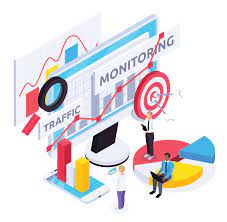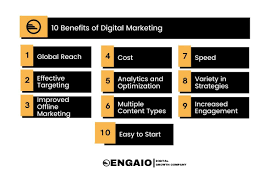The Importance of an SEO Specialist in Boosting Your Online Presence
In today’s digital age, having a strong online presence is crucial for businesses looking to thrive and succeed. With millions of websites competing for attention, it’s essential to ensure that your website stands out from the crowd. This is where an SEO specialist comes into play.
An SEO specialist is a professional who specializes in search engine optimization, a set of techniques aimed at improving a website’s visibility on search engine results pages (SERPs). They possess the knowledge and skills required to optimize your website’s content, structure, and technical aspects to increase its chances of ranking higher on search engines like Google.
One of the key benefits of working with an SEO specialist is their ability to conduct thorough keyword research. By identifying the most relevant and high-performing keywords for your industry or niche, they can help you create content that resonates with your target audience and aligns with their search intent. This targeted approach not only improves your website’s visibility but also drives quality organic traffic.
Furthermore, an SEO specialist understands the importance of on-page optimization. They will examine various elements such as meta tags, headings, URL structure, and internal linking to ensure that your website is optimized for both users and search engines. By making these optimizations, they enhance your website’s crawlability and indexability, making it easier for search engines to understand its content and rank it accordingly.
Off-page optimization is another area where an SEO specialist excels. They are skilled at building high-quality backlinks from reputable websites within your industry. These backlinks act as endorsements for your website, signaling to search engines that it offers valuable and trustworthy content. As a result, your website’s authority increases, leading to higher rankings on SERPs.
Moreover, an experienced SEO specialist keeps up-to-date with the ever-changing algorithms used by search engines. Search engines regularly update their algorithms to provide users with the most relevant and high-quality results. By staying informed about these updates, an SEO specialist can adapt your website’s strategy and ensure it remains compliant with the latest guidelines. This proactive approach helps safeguard your website’s rankings and prevents any potential penalties.
In addition to technical expertise, an SEO specialist also provides valuable insights through analytics and reporting. They monitor key performance indicators such as organic traffic, bounce rates, and conversion rates to assess the effectiveness of their strategies. Based on these metrics, they can make data-driven recommendations for further optimization, helping you continuously improve your website’s performance.
In conclusion, partnering with an SEO specialist is essential for businesses aiming to enhance their online visibility and drive targeted traffic to their websites. Their expertise in keyword research, on-page and off-page optimization, algorithm updates, and analytics empowers businesses to stay ahead of the competition in the digital landscape. By investing in professional SEO services, you can unlock the full potential of your online presence and achieve long-term success.
6 Pros of Hiring an SEO Specialist: Enhancing Visibility, Cost-effectiveness, Long-term Results, Driving Traffic, Enhancing User Experience, and Boosting Brand Recognition
- Increased visibility
- Cost-effective
- Long-term results
- Increased traffic
- Improved user experience
- Boosted brand recognition
7 Cons of Hiring an SEO Specialist: What You Need to Know
- SEO specialists may not be able to guarantee results.
- SEO can be expensive, especially for large companies.
- It can take a long time to see the results of an SEO campaign.
- SEO requires continual monitoring and updating of content and links to ensure its effectiveness in search engine rankings.
- It can be difficult to measure the success of an SEO campaign as there are many variables that affect rankings such as changes in algorithms or competition from other websites using similar tactics.
- There is no guarantee that an SEO specialist will be able to achieve the desired ranking or even maintain it over time due to constantly changing search engine algorithms and competition from other websites attempting similar strategies at any given time.
- Some unethical practices have been used by some unscrupulous providers which could potentially damage your website’s reputation with search engines if not employed correctly
Increased visibility
Increased Visibility: How an SEO Specialist Can Boost Your Online Presence
In the vast digital landscape, it’s not enough to have a well-designed website or great content. If your target audience can’t find you, your efforts may go unnoticed. This is where an SEO specialist becomes an invaluable asset.
An SEO specialist possesses the expertise to optimize your website and content to improve its visibility on search engine results pages (SERPs). By understanding the algorithms used by search engines like Google, they can strategically position your website in front of the right people – those actively searching for products or services like yours.
By conducting thorough keyword research, an SEO specialist identifies the terms and phrases that potential customers are using when searching online. They then incorporate these keywords into your website’s content and meta tags, making it more likely to appear in relevant search results. This targeted approach ensures that when people are looking for what you offer, they can find you easily.
Furthermore, an SEO specialist understands the importance of optimizing your website’s structure and technical aspects. They ensure that search engines can crawl and index your site efficiently, making it more likely to rank higher in search results. By improving factors such as load speed, mobile responsiveness, and user experience, they enhance your website’s visibility and make it more appealing to both users and search engines.
In addition to on-page optimization, an SEO specialist also focuses on off-page strategies such as building high-quality backlinks from reputable websites. These backlinks act as endorsements for your content or products, signaling to search engines that your website is trustworthy and authoritative. As a result, search engines are more likely to rank your site higher in their results pages.
By working with an SEO specialist, you gain access to their knowledge of algorithm updates and industry trends. Search engines continually refine their algorithms to provide users with the most relevant and valuable results. An SEO specialist stays up-to-date with these changes and adapts their strategies accordingly, ensuring your website remains visible and compliant with search engine guidelines.
Ultimately, an SEO specialist helps you increase your online presence and visibility. By optimizing your website for relevant keywords, improving its technical aspects, and building a strong online reputation through backlinks, they ensure that your target audience can easily find you when searching online. With increased visibility comes greater opportunities to attract and engage potential customers, leading to business growth and success.
In today’s competitive digital landscape, investing in the expertise of an SEO specialist is essential. They have the skills and knowledge to navigate the ever-changing world of search engine optimization, helping you rise above the competition and establish a strong online presence. So why wait? Partner with an SEO specialist today and unlock the full potential of your business in the digital realm.
Cost-effective
Cost-effective: The Power of an SEO Specialist in Boosting Leads and Sales
In today’s competitive business landscape, finding cost-effective marketing strategies that deliver tangible results is essential for any business. This is where the expertise of an SEO specialist comes into play. By implementing effective search engine optimization techniques, they can help businesses increase leads and sales while requiring fewer resources compared to other forms of marketing.
One of the key advantages of working with an SEO specialist is the cost-effectiveness of their strategies. Traditional marketing methods such as print advertising or television commercials can be expensive and often have limited reach. On the other hand, SEO focuses on improving your website’s visibility in organic search results, which means you don’t have to pay for each click or impression.
By targeting specific keywords and optimizing your website’s content, an SEO specialist helps you attract highly relevant organic traffic. These are users actively searching for products or services related to your business, making them more likely to convert into leads or customers. This targeted approach ensures that your marketing efforts are directed towards those who are genuinely interested in what you have to offer.
Furthermore, unlike paid advertising campaigns that require ongoing investment to maintain visibility, the effects of SEO can be long-lasting. While it may take time to see significant improvements in rankings and traffic, once achieved, maintaining those positions becomes more manageable with regular monitoring and adjustments by an SEO specialist. This means that over time, the cost per lead generated through SEO tends to decrease compared to other forms of marketing.
Additionally, an SEO specialist can help optimize your website’s user experience (UX), which plays a crucial role in converting visitors into customers. They focus on factors such as page load speed, mobile responsiveness, intuitive navigation, and engaging content. By enhancing these aspects of your website, they create a positive user experience that encourages visitors to stay longer on your site and take desired actions.
Moreover, by continuously analyzing data and monitoring performance metrics, an SEO specialist can identify areas for improvement and make data-driven decisions. This allows them to allocate resources effectively and focus on strategies that generate the highest return on investment (ROI). By optimizing your website based on these insights, you can maximize your marketing efforts and achieve better results with fewer resources.
In conclusion, hiring an SEO specialist is a cost-effective way to boost leads and sales for your business. Their expertise in keyword targeting, content optimization, UX enhancement, and data analysis enables businesses to attract highly relevant organic traffic while requiring fewer resources compared to traditional marketing methods. By investing in SEO, businesses can achieve long-lasting results and enjoy a higher ROI in the ever-evolving digital landscape.
Long-term results
The Long-Term Benefits of an SEO Specialist
In the fast-paced world of digital marketing, businesses are constantly seeking effective strategies to drive traffic and boost their online presence. While short-term campaigns like pay per click (PPC) advertising or social media advertising can yield immediate results, there is one pro of working with an SEO specialist that sets it apart: long-term results.
Search engine optimization (SEO) is a powerful tool that focuses on improving a website’s visibility and organic search rankings on search engine results pages (SERPs). Unlike PPC or social media advertising, which require ongoing investment to maintain visibility, SEO provides sustainable and long-lasting outcomes.
When you work with an experienced SEO specialist, they will develop a comprehensive strategy tailored to your business needs. This involves optimizing your website’s content, structure, and technical aspects to align with search engine algorithms and user preferences. By implementing these optimizations, your website becomes more attractive to search engines and users alike.
One significant advantage of SEO is its ability to generate organic traffic. By targeting relevant keywords and optimizing your website’s content accordingly, an SEO specialist ensures that your website appears in relevant search queries over time. This means that even after the initial optimization process is complete, your website will continue to attract organic traffic without ongoing ad spend.
Furthermore, unlike paid advertising campaigns that require constant monitoring and adjustments, once the foundation of your SEO strategy is in place, it becomes self-sustaining. While regular updates may be necessary to adapt to algorithm changes or industry trends, the bulk of the work is done upfront. This allows you to focus on other aspects of your business while still reaping the benefits of increased visibility in search engines.
Another advantage of long-term SEO results is their cumulative effect. Over time, as your website gains authority through high-quality backlinks and consistently optimized content, its rankings improve. The higher you rank on SERPs for relevant keywords, the more likely users are to click on your website. This increased visibility and click-through rate can lead to higher conversion rates and a steady stream of qualified leads.
Moreover, the long-term nature of SEO means that your investment continues to pay off even after the initial work is completed. While PPC or social media advertising campaigns require ongoing financial resources, SEO provides a lasting return on investment. As your website’s organic traffic grows, you reduce your reliance on paid advertising channels, resulting in cost savings over time.
In conclusion, working with an SEO specialist offers businesses the advantage of long-term results. Unlike short-term advertising campaigns that require ongoing investment, SEO provides sustainable visibility and organic traffic that can last for years. By optimizing your website’s content and structure, an SEO specialist helps you build a strong foundation for online success. So invest in an SEO specialist today and enjoy the long-lasting benefits of improved search engine rankings and increased organic traffic to your website.
Increased traffic
Increased Traffic: How an SEO Specialist Can Drive Relevant Visitors to Your Website
In the vast and competitive online landscape, getting noticed by your target audience can be a challenging task. This is where the expertise of an SEO specialist comes into play. By optimizing your website’s pages for search engine queries, they can help drive more relevant traffic to your online presence.
Search engine optimization (SEO) is all about understanding how search engines work and leveraging that knowledge to improve a website’s visibility on search engine results pages (SERPs). An SEO specialist possesses the skills and techniques required to make your website more discoverable by search engines like Google.
One of the greatest advantages of working with an SEO specialist is their ability to drive increased traffic to your website. By conducting thorough keyword research and analysis, they can identify the most relevant and high-performing keywords for your industry or niche. With this knowledge in hand, they optimize your website’s content to align with these keywords, making it more likely for search engines to rank it higher on SERPs.
As a result, when users search for terms related to your business or offerings, your website will appear prominently in their search results. This increased visibility translates into greater exposure and generates organic traffic from users who are actively seeking information or solutions related to what you offer.
Moreover, an SEO specialist goes beyond just optimizing content. They also focus on improving other aspects of your website that contribute to its visibility and user experience. This includes optimizing meta tags, headings, URL structures, and internal linking. By fine-tuning these elements, they ensure that both users and search engines can easily navigate and understand your website’s content.
By driving more targeted traffic to your website through effective SEO strategies, an SEO specialist helps attract visitors who are genuinely interested in what you have to offer. These visitors are more likely to engage with your content, explore other pages on your site, and potentially convert into customers or leads.
Furthermore, the increased traffic generated by an SEO specialist has long-term benefits. Unlike paid advertising, which stops driving traffic once the campaign ends, SEO efforts continue to yield results over time. By consistently optimizing your website and staying up-to-date with algorithm changes, an SEO specialist ensures that your website maintains its visibility and continues to attract relevant traffic for the long haul.
In conclusion, partnering with an SEO specialist can significantly boost your website’s traffic by improving its visibility on search engine results pages. Their expertise in keyword research, content optimization, and technical aspects of SEO helps drive more targeted visitors to your online presence. With increased traffic comes greater opportunities for engagement and conversions, ultimately contributing to the growth and success of your business in the digital realm.
Improved user experience
Improved User Experience: Enhancing Your Website’s Usability with an SEO Specialist
In today’s fast-paced digital world, user experience plays a crucial role in determining the success of a website. A skilled SEO specialist understands the importance of providing a seamless and user-friendly experience for visitors. By implementing good SEO practices, they can significantly improve the overall user experience of your website.
One of the key benefits of working with an SEO specialist is their ability to optimize your website’s structure and navigation. They carefully analyze your site’s architecture, ensuring that it is organized in a logical and intuitive manner. This makes it easier for users to navigate through your content and find what they are looking for quickly and easily. By reducing the number of clicks required to access information, an SEO specialist ensures a smooth browsing experience that keeps visitors engaged.
Additionally, an SEO specialist focuses on improving your website’s loading speed. Studies have shown that users have little patience for slow-loading websites, often abandoning them if they take too long to load. By optimizing elements such as image sizes, code efficiency, and server response times, an SEO specialist helps reduce page load times. This not only enhances the user experience but also improves your website’s search engine rankings since page speed is a ranking factor.
Furthermore, an SEO specialist pays attention to mobile optimization. With the increasing use of smartphones and tablets for browsing the internet, having a mobile-friendly website is essential. An SEO specialist ensures that your website is responsive and adapts seamlessly to different screen sizes and resolutions. This enables users to access your content comfortably on any device, improving their overall experience.
Another aspect where an SEO specialist contributes to better user experience is through optimized content. They conduct keyword research to understand what users are searching for and create relevant and informative content around those keywords. By providing valuable information tailored to users’ needs, an SEO specialist keeps visitors engaged and encourages them to spend more time on your website.
Moreover, an SEO specialist understands the importance of user engagement signals. They optimize elements such as headings, subheadings, and call-to-action buttons to make them more visually appealing and engaging. By improving these elements, they encourage users to interact with your website, increasing the chances of conversions and achieving your business goals.
In conclusion, working with an SEO specialist not only improves your website’s visibility on search engines but also enhances the user experience. By optimizing your site’s structure, navigation, loading speed, mobile responsiveness, and content, an SEO specialist ensures that users can easily find what they are looking for and have a positive browsing experience. Investing in good SEO practices not only benefits your search engine rankings but also contributes to building a loyal user base that keeps coming back for more.
Boosted brand recognition
Boosted Brand Recognition: The Power of an SEO Specialist
In today’s digital world, brand recognition plays a vital role in the success of any business. When consumers are aware of your brand and trust its reputation, they are more likely to choose your products or services. This is where an SEO specialist can truly make a difference.
One significant advantage of working with an SEO specialist is their ability to boost brand recognition. Through a well-executed SEO strategy, they can increase the number of people who become aware of your business through organic search results and other online channels like social media platforms.
By optimizing your website’s content with relevant keywords and phrases, an SEO specialist ensures that your website appears prominently in search engine results pages (SERPs). When potential customers search for products or services related to your industry, they are more likely to come across your website. This increased visibility not only drives organic traffic but also exposes more people to your brand.
Moreover, an SEO specialist understands the importance of social media platforms in building brand recognition. They can integrate social media into their strategy by creating engaging content that resonates with your target audience. By sharing this content on platforms like Facebook, Twitter, and Instagram, they can increase brand exposure and attract potential customers who may not have discovered your business otherwise.
Additionally, an SEO specialist knows how to leverage online channels beyond just search engines and social media. They can help you secure guest blogging opportunities on reputable websites within your industry. By contributing valuable content on these platforms, you position yourself as an expert in your field and gain exposure to a wider audience. This not only boosts brand recognition but also enhances credibility and trustworthiness.
Furthermore, by monitoring online conversations about your brand through tools like social listening or sentiment analysis, an SEO specialist can identify any negative sentiments or misconceptions that may exist. They can then work towards addressing these issues proactively and ensuring that the right message is conveyed about your brand. This proactive approach helps build a positive brand image and reinforces brand recognition.
In conclusion, partnering with an SEO specialist can significantly impact your brand recognition. Their expertise in optimizing your website for search engines, leveraging social media platforms, and monitoring online conversations allows them to increase your brand’s visibility and reach. By implementing a well-rounded SEO strategy, they help more people discover your business and create a lasting impression. With boosted brand recognition, you can establish yourself as a trusted authority in your industry and ultimately drive more customers to choose your products or services.
SEO specialists may not be able to guarantee results.
One Con to Consider: SEO Specialists May Not Guarantee Results
When it comes to search engine optimization (SEO), many businesses turn to SEO specialists for their expertise and guidance. While working with an SEO specialist can bring numerous benefits, it’s important to be aware of potential drawbacks as well. One such drawback is that SEO specialists may not be able to guarantee specific results.
SEO is a complex and ever-evolving field. Search engines like Google use intricate algorithms that determine how websites are ranked in search results. These algorithms take into account various factors such as website content, user experience, backlinks, and more. While SEO specialists have in-depth knowledge of these factors and employ strategies to improve a website’s visibility, they cannot control the algorithms themselves.
Due to the dynamic nature of search engine algorithms, it is impossible for an SEO specialist to guarantee specific rankings or outcomes. Search engines regularly update their algorithms, often making significant changes that can impact website rankings. As a result, even the most skilled SEO specialist cannot provide absolute assurances about where a website will rank or how quickly it will achieve desired results.
It’s important for businesses to approach SEO with realistic expectations. While an experienced SEO specialist can certainly increase a website’s visibility and organic traffic over time, the exact timeline and extent of these improvements can vary depending on several factors such as competition within the industry, current website status, and the effectiveness of implemented strategies.
Instead of focusing solely on guaranteed results, it is more beneficial for businesses to work with an SEO specialist who emphasizes transparency and provides clear insights into their process. A reputable specialist will conduct thorough research, perform regular audits of your website, and provide detailed reports on progress made. They should also offer recommendations based on best practices and industry standards.
Ultimately, success in SEO requires a collaborative effort between businesses and their chosen specialists. It’s crucial for businesses to actively participate in the process by providing relevant information about their target audience, goals, and unique selling points. This collaboration will enable the SEO specialist to tailor strategies that align with the business’s objectives and deliver the best possible results.
While SEO specialists may not be able to guarantee specific outcomes, their expertise and guidance can significantly improve a website’s visibility and organic traffic over time. By understanding the limitations of guaranteed results and focusing on a collaborative approach, businesses can work together with SEO specialists to achieve long-term success in the competitive online landscape.
SEO can be expensive, especially for large companies.
The Cost Conundrum: SEO Expenses for Large Companies
In the realm of digital marketing, search engine optimization (SEO) has become a vital tool for companies looking to boost their online visibility and attract organic traffic. However, one notable con of employing an SEO specialist is the potential cost, particularly for large companies with extensive online presence and complex websites.
SEO can be an expensive undertaking, especially when it comes to larger companies that operate across multiple markets or have a wide range of products and services. The sheer scale and complexity of these websites often require significant time and resources to optimize effectively.
Large companies often have numerous web pages, each requiring individual attention and optimization. This process involves conducting thorough keyword research, optimizing on-page elements, building quality backlinks, and continuously monitoring performance metrics. The sheer volume of work involved can lead to higher costs compared to smaller-scale SEO projects.
Moreover, large companies may face higher competition within their industry or niche. This means that achieving top rankings on search engine results pages (SERPs) can be more challenging and time-consuming. As a result, SEO specialists may need to invest more effort in implementing advanced strategies and tactics to outperform competitors. These additional efforts can further contribute to increased costs.
Another factor that adds to the expense is the need for ongoing SEO maintenance and updates. Search engines frequently update their algorithms, requiring continuous adaptation of SEO strategies to maintain optimal rankings. For large companies with extensive websites, this ongoing effort can be resource-intensive in terms of both time and manpower.
However, it’s important not to overlook the potential return on investment (ROI) that effective SEO can bring. Improved organic rankings lead to increased visibility among target audiences, driving more relevant traffic to a company’s website. This increased traffic has the potential to convert into leads or sales, ultimately generating revenue that outweighs the initial investment in SEO services.
To mitigate the cost conundrum associated with SEO for large companies, it’s crucial to work with experienced and reputable SEO specialists who can provide tailored strategies that align with specific business goals. By conducting a thorough analysis of the company’s online presence, competition, and target market, an SEO specialist can develop cost-effective strategies that prioritize areas of greatest impact.
Furthermore, open communication and transparency between the company and the SEO specialist are vital. Clearly defining objectives, expectations, and budget limitations from the outset can help ensure a mutually beneficial partnership that maximizes ROI while managing costs effectively.
In conclusion, while it’s true that SEO expenses can be higher for large companies due to the scale and complexity of their websites, it’s important to consider the potential long-term benefits. A well-executed SEO strategy has the power to significantly enhance a company’s online visibility, attract targeted traffic, and ultimately drive revenue growth. By carefully selecting an experienced SEO specialist and maintaining open communication throughout the process, large companies can find a balance between cost-effectiveness and achieving their desired online goals.
It can take a long time to see the results of an SEO campaign.
One of the Challenges of an SEO Specialist: Patience is Key
When it comes to implementing an SEO campaign, businesses often have high expectations for quick results. However, one con of hiring an SEO specialist is that it can take a considerable amount of time to see the desired outcomes. Patience becomes a crucial virtue in this process.
Search engine optimization is not an overnight solution; it requires a strategic and long-term approach. While some changes may yield immediate improvements, such as fixing technical issues or optimizing on-page elements, the overall impact on search rankings may take time to manifest.
Several factors contribute to the delayed results of an SEO campaign. Firstly, search engines like Google have complex algorithms that evaluate numerous ranking signals before determining a website’s position on SERPs. These algorithms are designed to prioritize websites with high-quality content, strong backlink profiles, and positive user experiences. Building and establishing these elements takes time and effort.
Secondly, competition within your industry plays a significant role in the timeline for seeing results. If you’re operating in a highly competitive market, outranking established competitors can be challenging. It requires consistent optimization efforts and ongoing content creation to demonstrate your website’s relevance and authority over time.
Additionally, search engines don’t immediately recognize changes made to a website. They need time to crawl and index the updated content before considering it for ranking purposes. This indexing process can vary in duration depending on factors such as website size, crawl frequency, and server response times.
However, while it may take time to see tangible results from an SEO campaign, this should not discourage businesses from investing in it. The delayed gratification is worth it because once your website starts climbing up the search rankings, you can reap long-term benefits.
An experienced SEO specialist will set realistic expectations from the start and provide regular progress reports along the way. They will focus on implementing sustainable strategies that build a solid foundation for organic growth rather than resorting to quick but short-lived tactics that may result in penalties from search engines.
Ultimately, the key to overcoming this con of delayed results is to approach SEO with a long-term mindset. By consistently implementing best practices, creating high-quality content, and adapting to algorithm updates, your website will gradually gain visibility and attract targeted organic traffic. Remember, Rome wasn’t built in a day, and neither is a successful SEO campaign.
SEO requires continual monitoring and updating of content and links to ensure its effectiveness in search engine rankings.
The Challenge of Continuous Monitoring and Updating in SEO
While search engine optimization (SEO) offers numerous benefits for businesses, it’s important to acknowledge that it requires continual monitoring and updating of content and links to maintain its effectiveness in search engine rankings.
One of the challenges faced by SEO specialists is the ever-changing nature of search engine algorithms. Search engines like Google regularly update their algorithms to deliver the most relevant and high-quality results to users. These updates can impact your website’s rankings, making it necessary to keep a close eye on algorithm changes and adjust your SEO strategies accordingly.
Moreover, SEO is not a one-time fix but an ongoing process. It involves continually monitoring your website’s performance, analyzing data, and making necessary adjustments. This includes keeping track of keyword trends, identifying new opportunities, and optimizing content to align with user intent. By regularly updating your content, you can ensure that it remains fresh, relevant, and engaging for both users and search engines.
Link building is another aspect that requires constant attention. Building high-quality backlinks from reputable websites helps improve your website’s authority and visibility in search engine rankings. However, maintaining a healthy link profile involves monitoring existing links, identifying broken or low-quality links, and proactively seeking new link-building opportunities. This continuous effort ensures that your website maintains a strong link profile that positively impacts its ranking potential.
Additionally, staying up-to-date with industry trends is crucial in the world of SEO. Techniques that were effective yesterday may become outdated today. As search engines evolve, so do user preferences and expectations. It’s essential for SEO specialists to stay informed about emerging trends such as voice search optimization or mobile-first indexing to adapt their strategies accordingly.
Although the need for continual monitoring and updating may seem like a drawback at first glance, it is actually an opportunity for businesses to stay ahead in the competitive online landscape. By investing in regular monitoring and updates, businesses can maintain their visibility on search engine results pages and adapt to changing user behaviors.
To effectively address this challenge, businesses can consider partnering with experienced SEO specialists who are equipped with the knowledge and tools to navigate the ever-changing SEO landscape. These professionals can handle the continuous monitoring and updating required for optimal search engine rankings, allowing businesses to focus on their core operations while reaping the benefits of a strong online presence.
In conclusion, while the need for continual monitoring and updating in SEO may present a challenge, it is an integral part of maintaining a successful online presence. By embracing this ongoing effort and working with knowledgeable SEO specialists, businesses can ensure that their websites remain optimized for search engines, driving organic traffic and ultimately achieving their digital marketing goals.
It can be difficult to measure the success of an SEO campaign as there are many variables that affect rankings such as changes in algorithms or competition from other websites using similar tactics.
The Challenge of Measuring SEO Success: Navigating Variables and Uncertainties
When it comes to implementing an SEO campaign, businesses often face the challenge of measuring its success accurately. This is primarily due to the numerous variables that can influence search engine rankings, including ever-evolving algorithms and competition from other websites utilizing similar tactics.
Search engine algorithms are constantly evolving to deliver the most relevant and high-quality results to users. These changes can significantly impact a website’s ranking position, making it difficult to attribute success solely to SEO efforts. What may have worked well in the past could become less effective or even penalized by algorithm updates.
Moreover, competition within the online landscape is fierce. Websites within the same industry or niche are vying for visibility and traffic, employing similar SEO strategies. This competitive environment introduces additional complexities when trying to measure the direct impact of an SEO campaign on rankings.
Another factor that adds to the difficulty of measurement is that search engines do not disclose their algorithms fully. While they provide general guidelines and best practices, the specific weighting and importance given to various ranking factors remain undisclosed. This lack of transparency makes it challenging for businesses to pinpoint which specific elements of their SEO campaign are driving results.
Additionally, there are external factors beyond an SEO specialist’s control that can influence rankings. For instance, changes in user behavior or shifts in market trends might impact search volume and keyword performance. These external factors further complicate the measurement process as they introduce variables outside of direct SEO efforts.
Despite these challenges, there are ways to navigate through uncertainties and gain insights into the success of an SEO campaign. One approach is by focusing on a combination of key performance indicators (KPIs) such as organic traffic growth, conversion rates, and engagement metrics like time on page or bounce rates. Monitoring these metrics over time can provide a broader picture of how your website is performing in relation to your business goals.
It’s also crucial to establish clear objectives and benchmarks before implementing an SEO campaign. By setting specific, measurable goals, you can track progress and evaluate the impact of your efforts more effectively. Regular reporting and analysis of data can help identify trends and patterns that indicate success or areas for improvement.
Additionally, working closely with an experienced SEO specialist can provide valuable insights. They can help interpret data, identify correlations between SEO activities and changes in rankings, and make informed recommendations based on their expertise. Their knowledge of industry trends and best practices can help navigate the complexities of measurement in the ever-changing SEO landscape.
In conclusion, measuring the success of an SEO campaign can be challenging due to various variables and uncertainties. However, by focusing on relevant KPIs, establishing clear objectives, and leveraging the expertise of an SEO specialist, businesses can gain valuable insights into the effectiveness of their efforts. While it may not always be possible to attribute success solely to SEO tactics, a comprehensive approach to measurement allows businesses to make informed decisions for ongoing optimization and growth.
There is no guarantee that an SEO specialist will be able to achieve the desired ranking or even maintain it over time due to constantly changing search engine algorithms and competition from other websites attempting similar strategies at any given time.
The Limitations of SEO Specialists: Navigating the Ever-Changing Digital Landscape
In the world of search engine optimization (SEO), it’s important to acknowledge that there are certain limitations to what an SEO specialist can achieve. Despite their expertise and best efforts, there is no guarantee of achieving and maintaining desired rankings over time. This is primarily due to two factors: constantly evolving search engine algorithms and competition from other websites employing similar strategies.
Search engines like Google regularly update their algorithms to provide users with the most relevant and high-quality search results. These algorithm changes can significantly impact website rankings, even if they were previously performing well. An SEO specialist may implement effective strategies based on current algorithms, but if those algorithms change, it can require adjustments to maintain or regain visibility.
Moreover, competition in the digital landscape is fierce. Just as you employ an SEO specialist to improve your website’s rankings, other businesses are doing the same for theirs. They may be targeting similar keywords and implementing comparable optimization techniques. This means that even with an expert guiding your SEO efforts, you are still competing against numerous other websites vying for the same visibility.
While these factors present challenges, they do not diminish the importance of working with an SEO specialist. Their expertise remains crucial in navigating this complex landscape and maximizing your website’s potential visibility. Although guarantees cannot be made regarding specific rankings or long-term maintenance, an experienced SEO specialist will employ strategies designed to improve your website’s overall performance.
Rather than focusing solely on achieving a particular ranking position, an SEO specialist should prioritize driving targeted organic traffic and enhancing user experience on your website. By creating valuable content aligned with user intent and optimizing technical aspects for improved accessibility and usability, they lay a solid foundation for long-term success.
Additionally, a skilled SEO specialist will continuously monitor industry trends and stay updated on algorithm changes. This allows them to adapt strategies accordingly and minimize any negative impact caused by fluctuations in search engine algorithms.
It’s important to approach SEO as a long-term investment, understanding that results may take time and require ongoing efforts. While there are no guarantees in the ever-changing digital landscape, partnering with an SEO specialist provides you with the best chance of achieving and maintaining strong online visibility. Their expertise, combined with a strategic and adaptable approach, will help your website stay competitive and relevant in the dynamic world of search engine optimization.
Some unethical practices have been used by some unscrupulous providers which could potentially damage your website’s reputation with search engines if not employed correctly
The Potential Risks of Unethical SEO Practices
While search engine optimization (SEO) is a valuable tool for improving your website’s visibility and driving organic traffic, it’s important to be aware of the potential risks associated with unethical SEO practices. Unfortunately, some unscrupulous providers have been known to employ unethical tactics that could potentially harm your website’s reputation with search engines if not used correctly.
One of the most common unethical practices is keyword stuffing. This involves excessively and unnaturally cramming keywords into website content, meta tags, or other areas in an attempt to manipulate search engine rankings. However, search engines have become increasingly sophisticated in detecting this practice and may penalize websites that engage in keyword stuffing. It’s crucial to maintain a natural balance between optimizing your content for search engines and providing valuable information for users.
Another unethical practice is the creation of low-quality or spammy backlinks. Some providers may resort to purchasing links from irrelevant or low-authority websites, which can negatively impact your website’s credibility and rankings. Search engines value high-quality backlinks from reputable sources that genuinely endorse your content. It’s essential to focus on building organic backlinks through legitimate means such as creating valuable content that naturally attracts links from authoritative websites.
Cloaking is another unethical tactic where different versions of a webpage are presented to search engine crawlers and users. This deceptive practice aims to manipulate search engine rankings by presenting optimized content solely for search engines while showing different content to users. Search engines consider cloaking as a violation of their guidelines and may penalize websites engaging in this practice.
Furthermore, some providers may engage in link schemes or participate in link farms where numerous websites exchange links solely for the purpose of boosting rankings. These artificial link-building strategies are highly discouraged by search engines as they undermine the integrity of organic search results. It’s important to focus on building genuine relationships with relevant websites and earning high-quality backlinks through valuable content.
It’s crucial to choose an SEO specialist who adheres to ethical practices and follows search engine guidelines. By working with a reputable provider, you can ensure that your website’s reputation remains intact and that your SEO efforts contribute to long-term success. A trustworthy SEO specialist will prioritize providing value to users, creating high-quality content, and employing legitimate optimization techniques.
In conclusion, while SEO is a powerful tool for improving your online presence, it’s essential to be cautious of unethical practices. Keyword stuffing, spammy backlinks, cloaking, and link schemes can potentially damage your website’s reputation with search engines. By working with an ethical SEO specialist who prioritizes sustainable strategies and adheres to search engine guidelines, you can mitigate these risks and build a strong online presence based on integrity and quality.












